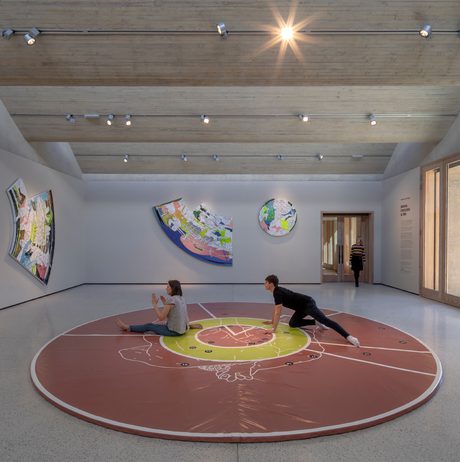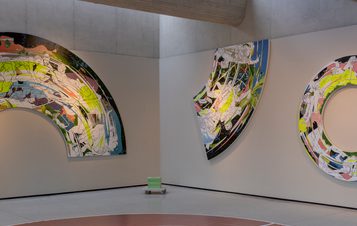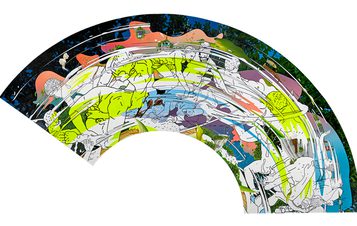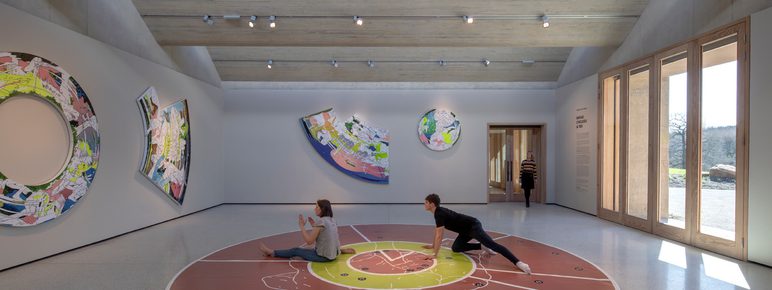
About Thukral and Tagra: Bread, Circuses and TBD
'The language within the artwork doesn't just apply to a localised context—it opens up a much larger, cyclical dialogue of which we are all part. We want to create something that any person can respond to, based on their own personal experience or level of understanding.’ - Thukral and Tagra
Thukral and Tagra invited families, friends, and strangers to wrestle with the issues faced by farmers in India through their immaculately conceived installation Bread, Circuses & TBD, which inaugurated The Weston Gallery.
Known internationally for their highly engaging and profound projects that raise awareness of important issues in the current world, the Delhi-based artists continued their ongoing investigation into ‘kushti’, a traditional form of wrestling practiced across India and especially by farmers.
The artists had been interested in the act of kushti as a social construct, the coded vocabulary of sport and the playing field – in this case, the ‘akhara’ – since 2006, when they first began supporting the akhara community in Jalandhar, the hometown of Jiten Thukral. In their first wrestling project, Match Fixed (2010), the artists began to understand the intricate details of the lives, trials, and tribulations of the agricultural community. Their involvement evolved to support the establishment of a kitchen, run by the families of farmers that were affected by suicides in order to provide meals for their children.
Informed by their long enquiry into game theory, including their research into the Don Pavey Collection, held in the National Arts Education Archive at YSP, the central installation Farmer is a Wrestler was an interactive challenge that invites participants as players to try out seven traditional wrestling manoeuvres, echoing the game of ‘Twister’. Participants landed on numbers, rather than colours, where each represented a trial faced by farmers in India, and across the world, such as global warming, suicide, agrarian distress, and drought. The participant was encouraged to interact with the space to better understand and comprehend the hardship of this ongoing situation. The exhibition demonstrated the duality of the figure of the farmer as a wrestler, staging strategies for survival against a complex set of challenges. The work explored not only their psyche but the body and human form as a site for endurance and strength.
A huge and intricate painting in the shape of a wrestling arena was split into sections and shown on the gallery walls. The paintings were comprised of five layers, which linked to the hardships and dire situations faced by the farmers in Farmer is a Wrestler, including wrestling figures inspired by the artists’ interviews with the farmers and their families; the crops and the associated activities vital to their livelihood; and a highlight, which gave emphasis to the issues under discussion.
The ongoing series title of ‘Bread, Circuses’ drew from the metaphor of the Roman arena as a stage not only for competition and for the display of sportsmanship, but equally as a mode of survival strategies and the earning of daily bread. The body of work reflects on the lives of Indian people as affected by daily politics, society, and cultural norms. The YSP iteration ‘TBD’ (‘to be determined’), referenced the precariousness and uncertain future faced by Indian farmers and was represented by the white areas of incomplete canvas in the paintings.
For decades, farming and agriculture communities across the country had been facing extremely difficult situations, living in poverty and oppression, with little or no control over their land or livelihood, leading to suicides. While there are constant protests and uprisings by farming communities, their pleas are often unheard by the government or go unnoticed. A tiny grain of sand or wheat became a metaphor that carried through the installation, sand being an element that is sacred for the akhara wrestler and wheat for the farmer.
This project aimed to interrogate a larger set of political issues through the act and metaphor of wrestling, applying artistic agency to question the status quo but also offer hope.
In response to the severity of these issues, Thukral and Tagra set up community kitchens in Punjab as sustainable sites for empathy, care, and knowledge exchange. Not only do these centres provide food for people living in rural communities, but they also employ the widows of farmers who have taken their own lives. Inspired by food served in these kitchens, the artists created a special menu for The Restaurant alongside a set of seven limited edition terracotta bowls representing each of the wrestling moves, which were available to purchase in the shop. Contributions from the sales of both initiatives were donated to the artist‘s community kitchen project.
As a platform for debate and the presentation of relevant current affairs, this project continued a highly popular strand of YSP’s programming that has included Alfredo Jaar (Chile/US), Shirin Neshat (Iran/US), Amar Kanwar (India) and Yinka Shonibare (Nigeria/UK).
You might also like
- News
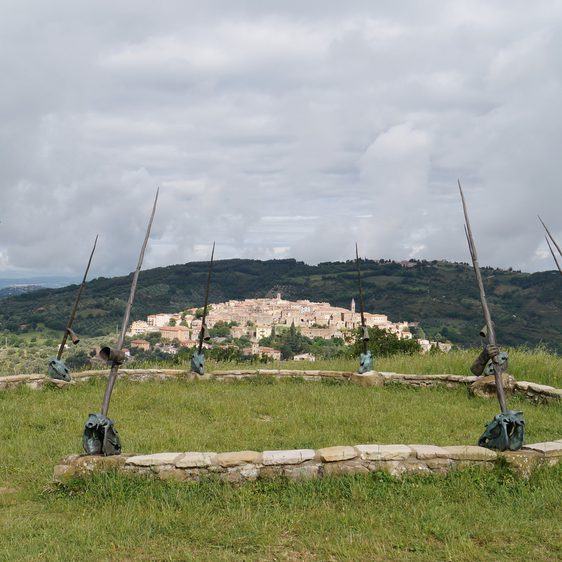
Land Art with Anna Mazzanti and Dr Helen Pheby
19 December 2022 - Profile

Magnus von Wistinghausen
- News
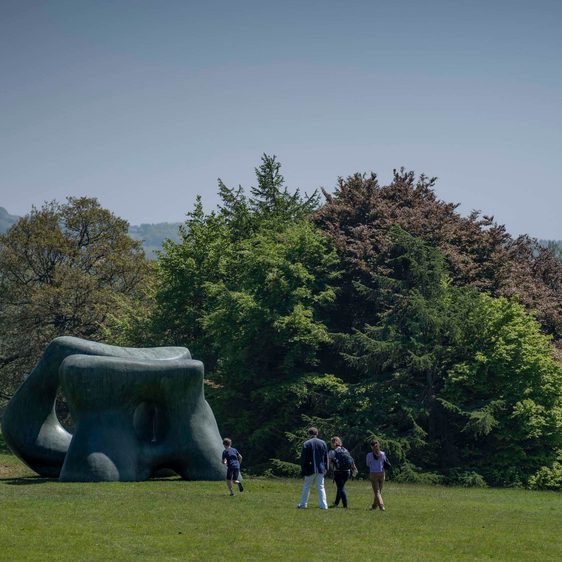
YSP recognised as ‘gold’ winners in Visit England Awards
26 October 2022 - Event
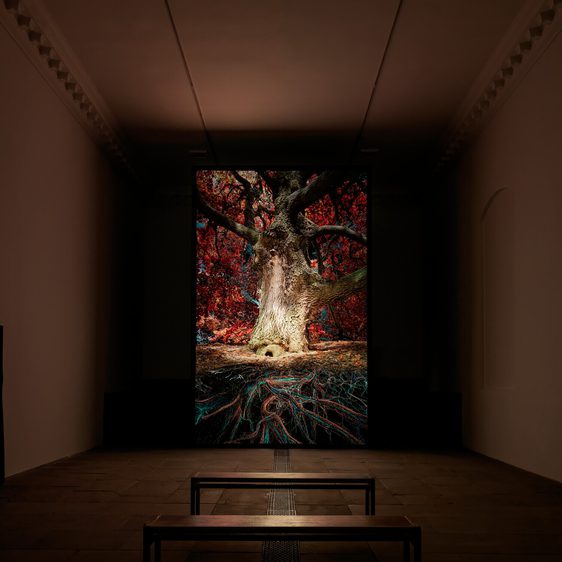
Yoga and Sound Bath Relaxation: Of the Oak
Join us for an extended mid-week yoga practice in the Chapel, softly lit by the majestic Of the Oak installation.
